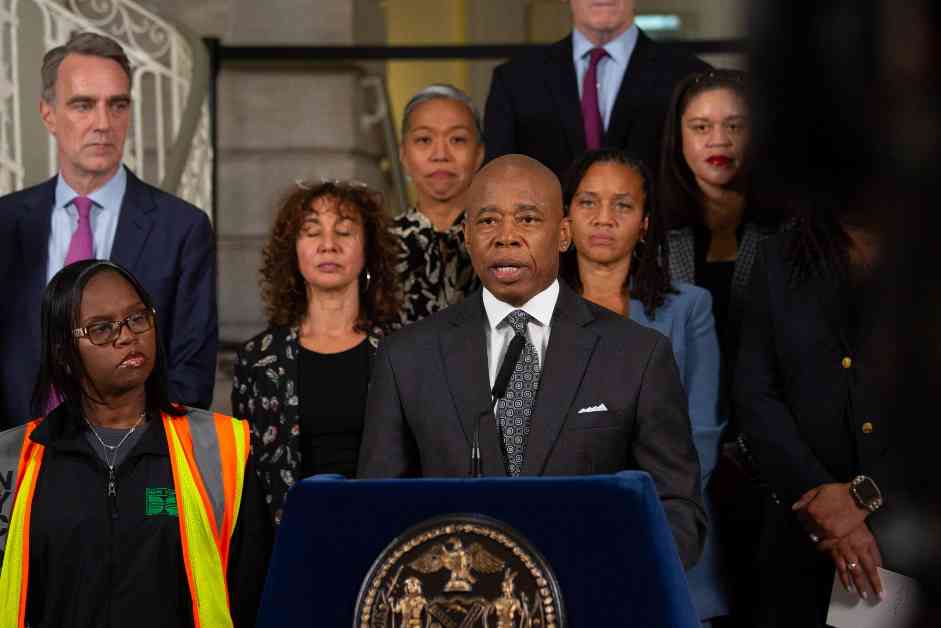Exploring the Possibility of Forcing Mayor Eric Adams Out of Office
Amidst ongoing federal investigations surrounding Mayor Eric Adams and his administration, calls for his resignation have been mounting. Progressive politicians such as Councilmember Tiffany Cabán (D-Queens), state Senator Julia Salazar (D-Brooklyn), and Assemblymember Emily Gallagher (D-Brooklyn) have urged Adams to step down. Despite the pressure, Adams has remained steadfast in his decision not to resign. However, there is a possibility that he could be forced out of office, leading to questions about what would happen next.
Potential Scenarios for Eric Adams Leaving Office
If Mayor Eric Adams were to leave office, it could happen either voluntarily through resignation or involuntarily through removal. The New York City Charter, which outlines the rules for city government, has evolved over the years. In the event of Adams’ departure today, a new process for replacing him would be triggered, one that has never been enacted before.
Who Holds the Power to Remove the Mayor?
Governor Kathy Hochul possesses the authority to remove the Mayor of New York City from office, although this power has never been exercised. In the past, calls were made to remove Mayor Bill De Blasio for various reasons, but no action was taken by the governor. Another option for removing the mayor is through an “inability committee” as outlined in the City Charter. This committee would consist of key city officials who could vote to declare the mayor temporarily or permanently unable to fulfill the duties of the office.
In the event of an indictment, Mayor Adams could still continue to serve unless removed by the governor or the inability committee. The legal experts have indicated that an indictment alone would not automatically disqualify Adams from serving as mayor.
Succession Plan After Mayor Adams’ Departure
Should Mayor Eric Adams leave office, the Public Advocate Jumaane Williams would assume the role of acting mayor. In the event that Williams is unable to fulfill the duties, Comptroller Brad Lander would be next in line. A special election would then be scheduled to elect a new mayor, using ranked-choice voting to determine the winner.
The special election would be nonpartisan, allowing all registered voters to participate regardless of party affiliation. Candidates would run as individuals, and the winner of the special election would serve until the official mayoral primaries in June 2025. The newly elected mayor would then take office in November 2025.
If Mayor Adams were to step down within 90 days before the June primaries, there would be no special election. Rather, Acting Mayor Williams would serve until the new mayor is elected in November, accelerating the transition of power.
Impact on the 2025 Mayoral Race
The potential scenario of Mayor Eric Adams leaving office and a special election being held would have significant implications for the upcoming 2025 mayoral race. Incumbent Acting Mayor Williams and the winner of the special election would both be eligible to run for mayor in 2025.
City Council Minority Leader Joseph Borelli has expressed interest in entering the special election if Adams resigns. A nonpartisan election could provide Borelli with a better chance of winning as a prominent Republican candidate. Other declared candidates for the 2025 mayoral race, such as Comptroller Brad Lander, State Senator Zellnor Myrie, and State Senator Jessica Ramos, may also participate in the special election.
The outcome of the special election would shape the dynamics of the 2025 mayoral race, potentially influencing the strategies and chances of candidates seeking to lead New York City. The possibility of a special election presents a unique opportunity for candidates to showcase their platforms and gain momentum leading up to the official primaries in June 2025.
